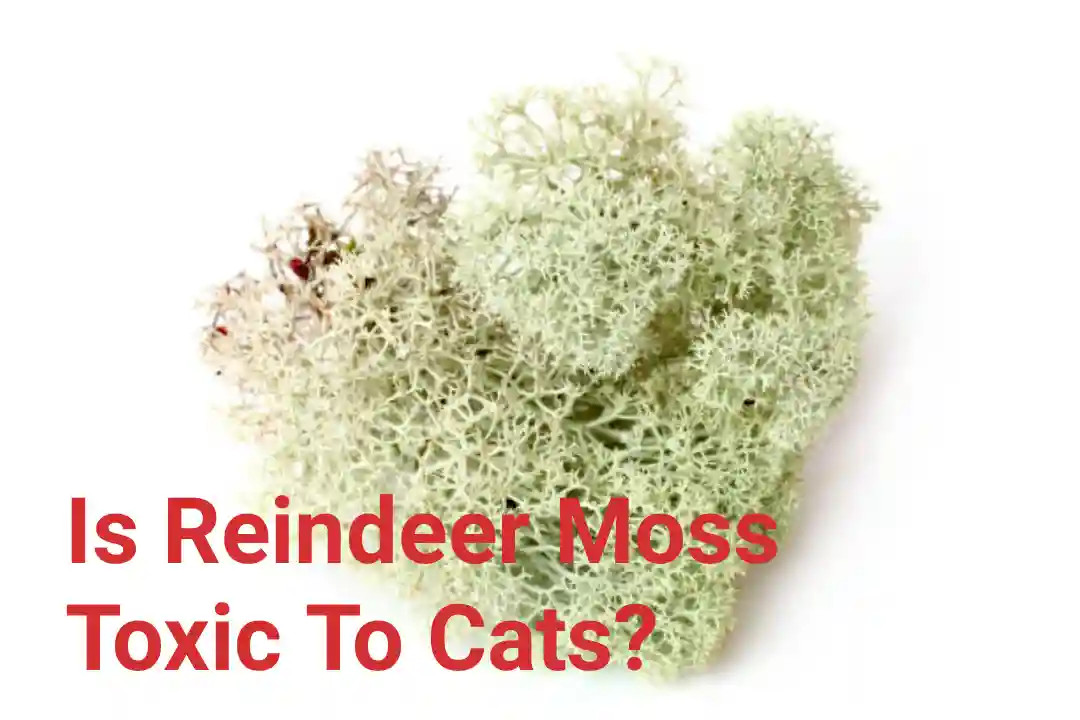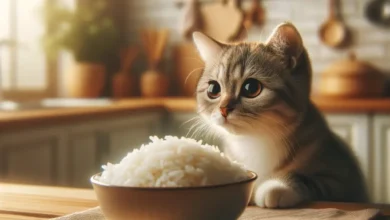
Can the presence of Reindeer moss in your home or environment lead to the loss of your cat? Reindeer Moss is not toxic in the real sense, especially to herbivores. However, the plant contains chemical properties that differ slightly from regular moss plants. Scientists believe that Reindeer moss does not fit perfectly into the moss family of plants. They think it belongs to the lichen family.
You may ask, “is reindeer moss toxic to cats?” The presence of lichen acid in reindeer moss makes it potentially hazardous, especially to smaller animals like cats. Herbivorous animals like reindeer or musk oxen may find it delicious. However, cats and smaller carnivores would suffer damaging complications if ingested too much of the plant.
Before answering how the plant is, it is best to have a brief overview of reindeer moss quickly: what it is, how it is grown, where it grows, and its toxic compounds.
Read: Are blueberry plants toxic to cats?
Table of Contents
- What Is Reindeer Moss?
- Is Reindeer Moss Toxic To Cats?
- Hazardous Content Of Reindeer Moss
- Effects Of Reindeer Moss On Cats’ Health
- How To Prevent Cats From Eating Reindeer Moss
- Keeping Cat Food Away From Plant
- Cat Owners’ Experiences With Reindeer Moss
- Is Reindeer Moss Toxic to Cats? Final Thoughts
What Is Reindeer Moss?
We, humans, are quick to beautify our environments with fancy-looking plants. However, we forget that even though some of these plants are safe for us, they could harm our pets. Wild plants like lantana, rose, morning glory, sunflower,
Hibiscus, Pride of Barbados, and Bougainvillea have found their way into human homes and environments. Like the wild plant, reindeer moss is another plant that humans have brought into their place of abode to add more beauty to the environment.
Reindeer moss is a spongy-textured plant that grows well in hot and cold climates. The beauty of the plant led to its extensive adoption in interior and exterior decorations. However, there is a growing concern about the danger of the plant if pets consume it.
Reindeer moss is a brightly colored lichen plant that grows around rocks in arctic lands: if you are not familiar with the plant already.
Interestingly, its Reindeer moss name comes from the relationship between the plant and reindeer, musk oxen, and other animals that feed on the plant.
It found its way into the human world when people in some parts of the world explored it for alcohol and other industrial use. Producers using it as raw materials later found how to mass produce the plant to ramp up output: rather than waiting for its slow regenerative cycles.
The cultural activities of producers led to the extensive use of the plant for decorative and ornamental purposes. With the use of the plant in human abodes, outdoor and indoor pets are now at risk of nibbling at the plant. If you have pets in your homes or environments, you may not know when they will take a bite at your reindeer moss: especially cats. It exposes them to lichen acid contained in the plant.
Is Reindeer Moss Toxic To Cats?
Ideally, reindeer moss is categorized as a lichen and not mainly a moss. Mosses are generally flowerless green plants that grow in damp areas via spores, while lichen is generally animal-like plants that grow around rocks through the activities of fungi and algae.
Lichens contain Microcystins, and according to experts, lichens are toxic. Your cats are predominantly carnivorous animals. They thrive on flesh. If cats eat reindeer moss, they are at risk of health hazards and complications.
Animals like reindeer and musk oxen can tolerate the chemical substance of this lichen (reindeer moss) because they have internal organs adapted to this kind of food. But cats are not adapted to eat the plant.
Hazardous Content Of Reindeer Moss
Lichen acid, heavy metals, and other compounds are dangerous. Studies carried out by researchers revealed that lichen has enough toxicity to damage vital organs in animals when the lichen content in their food is up to 50%.
They found that consuming these lichen acids raises the risk of kidney damage and could cause hazards to other visceral organs. It is also said that continued consumption of the plant could result in loss of life for animals not adapted to it.
Effects Of Reindeer Moss On Cats’ Health
Some symptoms you might notice in your pets when exposed to lichen toxins could range from vomiting to seizures, coma, stooling, etc. Eating reindeer moss may not take your cat’s life instantly, but it definitely puts the cat’s life cat at risk in the long run.
The lichen acid contained in Reindeer moss has enough potency to result in poisoning.
How To Prevent Cats From Eating Reindeer Moss
The lethal effect of lichen acid does not mean you should throw your reindeer moss plants away. Beautifying your environment with the plant’s uniqueness is not a bad idea. However, you must be prepared to take preventive steps to keep your cats and other pets safe.
Instead of waiting till the damage is done, you can follow the measures below to prevent your cats from feeding on your reindeer moss.
Buy A Pet-Safe Reindeer Moss
Manufacturers, designers, or artists have special ways of quoting the preserved reindeer moss to make it unappealing to pets like cats, geckos, rabbits, and other indoor pets. Rather than collecting your reindeer moss from the wild, opting for a preserved plant keeps your pet safe. Preserved mosses are often heat-prepared and treated with chemicals to remove the toxins, making them much safer for your pets.
Use Cat-Proof Fencing For Your Garden
If your cat has its way of getting out of the house into your garden, it may be the right time to cat-proof your garden, especially if you have reindeer moss plants or other lichens in there.
Use Sent Repellants
Repellants around the garden or indoor reindeer moss plants could help keep your cats at bay. Regularly applying these repellants could save the life of your pets forever. There are several harmless cat repellants you can acquire from pet stores.
Keeping Cat Food Away From Plant
Food motivates most animals and pets to take irrational actions. Keep your pet’s food and food sources far away from the reindeer moss plant, and you will reduce the chance of cats eating your plant. This simple action can reduce the risk of cats eating the plant by up to eighty percent.
The best way to reduce the risk is by ensuring that you put the reindeer moss out of the reach of your pets.
If you must have reindeer moss in your home, you may need to take drastic measures to ensure that cats will not ingest the plant, especially when serving their meals. Consistent consumption of the plant over time could result in large deposits of lichen acid in your cat’s system, leading to poisoning and other health issues.
If you feed them in the room where your moss is planted, ensure they are far away from the plant. When lichens constitute fifty percent of your cats’ food intake, the likelihood of health hazards increases.
Cat Owners’ Experiences With Reindeer Moss
In the words of a cat owner from a vet forum called Just Answer Cat Veterinary: My cat ate moss that was surrounding a plant sent to my home. He vomited it up. Is moss poisonous? Response from veterinary experts to her shows that there is a need to take immediate action to forestall whatever side effect her cat may experience as a result of the plant. While this may not be a typical case of reindeer moss, it reveals the health risk your cat faces if proper care is not taken to keep the cat safe.
Is Reindeer Moss Toxic to Cats? Final Thoughts
Reindeer moss brings a unique touch of natural beauty to your garden. That look of a snowy morning creates a unique experience that very few ornamental plants can offer. However, the exceptional beauty of this lovely plant can easily jeopardize the life of your cat. Humans who ingest the plant have been found to develop discomfort.
In other cases, lab rats have developed terminal illnesses and even died from ingesting untreated samples of reindeer moss. The smaller body frame of animals like cats and rats increases the lethal effect of toxins from the plant. Having shown you everything you need to know, it’s in the best interest of your cats and pets to follow the recommendations and suggestions offered above. It will reduce the risk of health hazards that the plant could pose to your pets, especially your cat.



